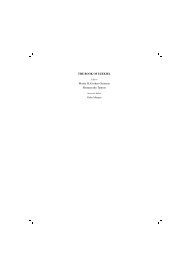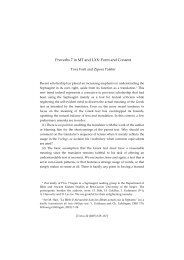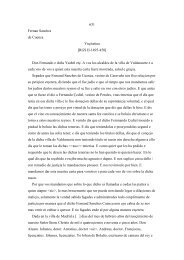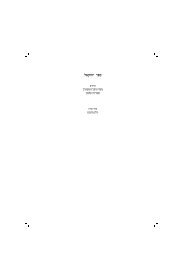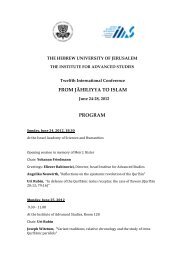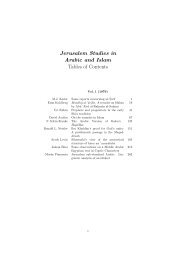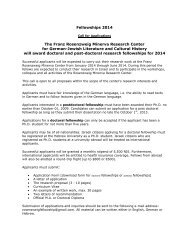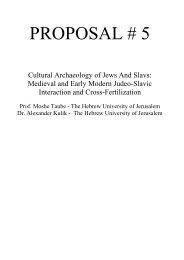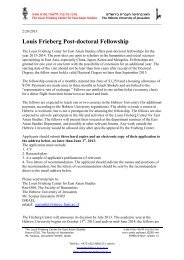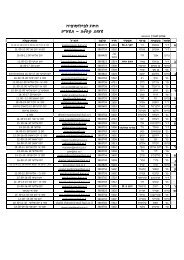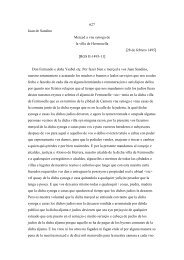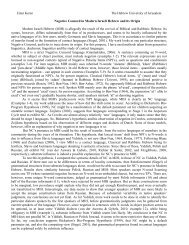Baber Johansen
Baber Johansen
Baber Johansen
You also want an ePaper? Increase the reach of your titles
YUMPU automatically turns print PDFs into web optimized ePapers that Google loves.
Abstract<br />
This paper attempts to analyze the relation between law and theology in<br />
Islam. It focuses on the acts of worship that constitute a sphere of<br />
transcendence, clearly distinguished from legal and social transactions<br />
between humans. In this sphere of transcendence believers find a model for<br />
embodied normative behavior meant to bring them closer to God. But<br />
coming closer to God is not just the function of the cult; it also serves as a<br />
model for social and legal behavior. It thus links the cult to the world of<br />
inter-human relations. The cult and the links to God that it establishes are<br />
integrated into a legal, not a theological framework. The author tries to<br />
render this fact comprehensible through references to major Muslims<br />
theologians and jurists of the twelfth and early thirteenth centuries who<br />
systematically explain the relation between Islamic jurisprudence and<br />
theology as a division of labor between a rational reconstruction of God’s<br />
creation and a revelation-based legal norm derivation. The theoretical<br />
framework of this paper is provided by the reflection on the tension between<br />
contingent and non-contingent actors and norms.<br />
<strong>Baber</strong> <strong>Johansen</strong> is Professor for Islamic Religious Studies at Harvard<br />
Divinity School. Before coming to Harvard he taught as professor for<br />
Islamic Studies in the Freie Universitaet Berlin and as Directeur d’études at<br />
the Ecole des Hautes Etudes en Sciences Sociales in Paris. His main<br />
research interest is the history and the present of Islamic law. His most<br />
important publications are: Contingency in a Sacred Law: Legal and Ethical<br />
Norms in the Muslim Fiqh (Brill, 1999); The Islamic Law on Land Tax and<br />
Rent. The Peasants’ Loss of Property Rights as Interpreted in the Hanafite<br />
Legal Literature of the Mamluk and Ottoman Periods (Croom Helm, 1988);<br />
Islam und Staat. Abhängige Entwicklung, Verwaltung des Elends und<br />
religiöser Anti-Imperialismus (Das Argument, 1982); Muhammad Husain<br />
Haikal. Europa und der Orient im Weltbild eines ägyptischen Liberalen<br />
(Steiner, 1967 ; Arabic translation: Kalima, 2010). He co-edited, with D.J.<br />
Stewart and A. Singer, Law and Society in Islam (Markus Wiener Publisher,<br />
1997); and with A. Havemann, Gegenwart als Geschichte.<br />
Islamwissenschaftliche. Studien. Fritz Steppat zum fünfund-sechzigsten<br />
Geburtstag (Brill, 1988). With David Powers and Aharon Layish he served<br />
as editor of Islamic Law and Society (1994-2012).



